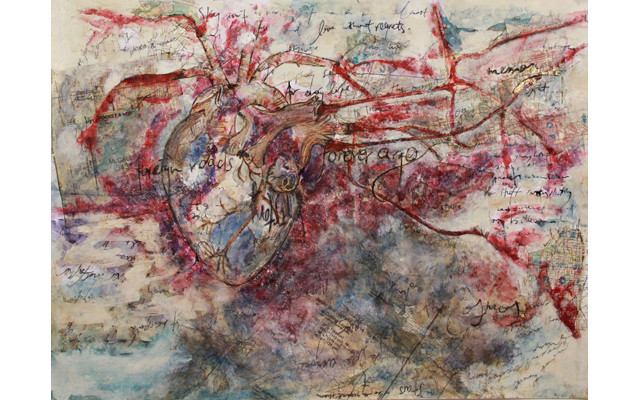Journal of Unlikely Cartography
Issue 9, June 2014

Table of Contents
How a Map Works by Sarah Pinsker
How to Recover a Relative Lost During Transmatter Shipping, In Five Easy Steps by Carrie Cuinn
The Occluded by Rhonda Eikamp
All of Our Past Places by Kat Howard
This Gray Rock, Standing Tall by James Van Pelt
The Cartographer’s Requiem by Shira Lipkin
Editor’s Note:
Last year we ran a contest of sorts to help us choose the title (and theme) of this issue, and when Sarah Pinsker first suggested “Unlikely Cartography,” my instant reaction was, “Yes, that.” I have loved maps since before I knew what they were. I remember when I was young, pulling my father’s topographic globe off the bookshelf and onto the floor, running my hands over it and, when my dad walked in to find me sitting amidst a heap of fallen books, asking, “What is this?”
By which I meant, of course, “What is the meaning of the signifiers, both graphic and linguistic, spread across this strange ball?” I didn’t have all those words yet, of course, since I had only just started learning my alphabet, but my dad understood. It became a new game for us: I’d spin the globe, close my eyes and put my finger down. When the globe stopped, my father would tell me a story about the people who lived there.
Maps describe the world — not just as it is, but as it is seen by the people making the maps, incorporating their worldview, their (often unstated and unexamined) predispositions and their concerns and interests. A map might show political boundries or geological features, might show safe waters for shipping or house prices in a neighborhood. It might show you how to get from one place to another.
At the same time, a map defines the world. A line on a map dictates languages, laws, opportunities, possibilities. Change the lines on the maps, and reality shifts to adjust.
The stories that follow encompass all of that, as the characters search for themselves, for those they have lost, and for those they have yet to find, and, as one does when one keeps one’s eyes open, find more than they expect.
Bernie Mojzes
June 2014
 Unlikely Story
Unlikely Story

Pingback: Unlikely Story Goes to Readercon | Unlikely Story